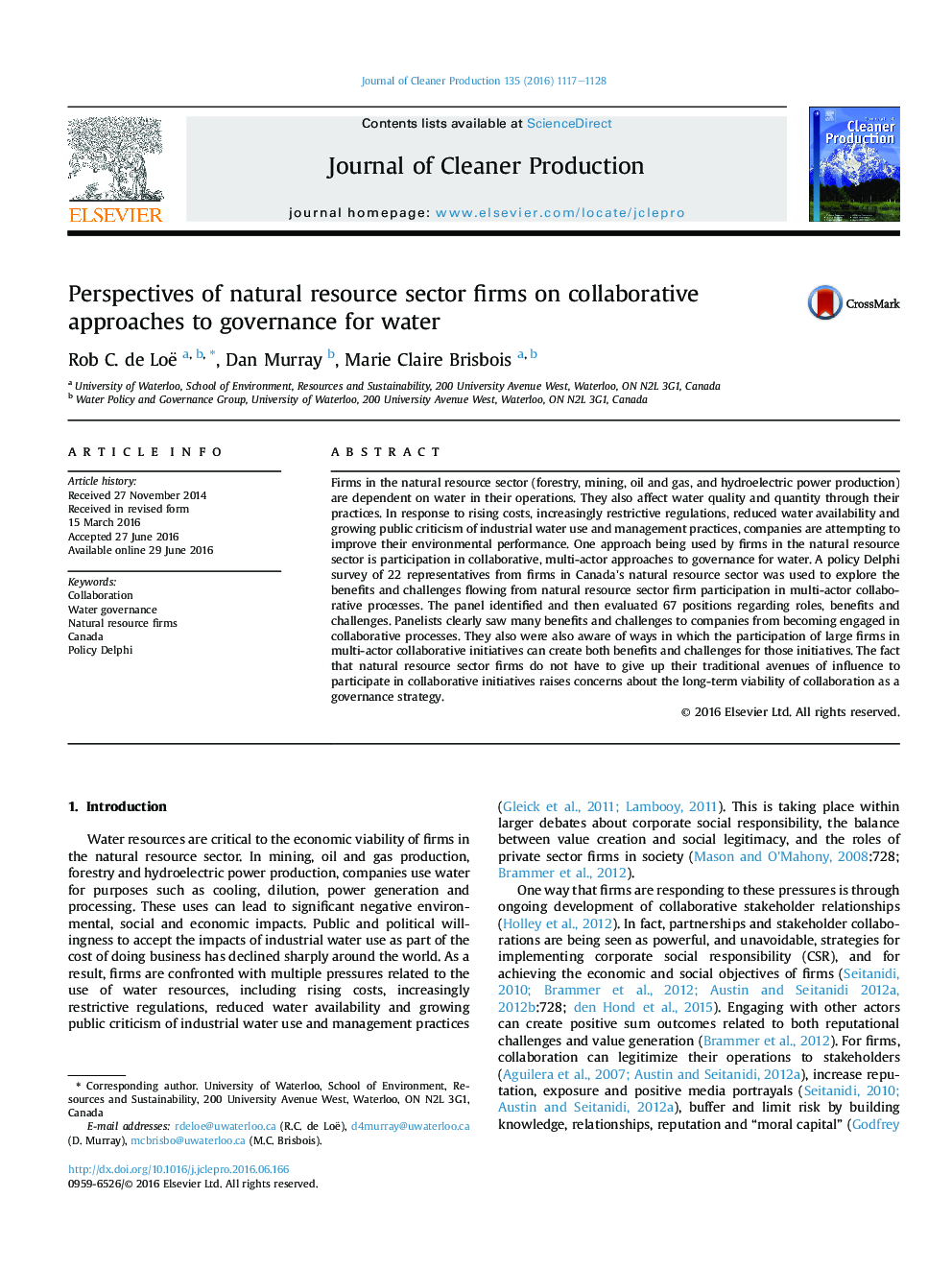| Article ID | Journal | Published Year | Pages | File Type |
|---|---|---|---|---|
| 8101394 | Journal of Cleaner Production | 2016 | 12 Pages |
Abstract
Firms in the natural resource sector (forestry, mining, oil and gas, and hydroelectric power production) are dependent on water in their operations. They also affect water quality and quantity through their practices. In response to rising costs, increasingly restrictive regulations, reduced water availability and growing public criticism of industrial water use and management practices, companies are attempting to improve their environmental performance. One approach being used by firms in the natural resource sector is participation in collaborative, multi-actor approaches to governance for water. A policy Delphi survey of 22 representatives from firms in Canada's natural resource sector was used to explore the benefits and challenges flowing from natural resource sector firm participation in multi-actor collaborative processes. The panel identified and then evaluated 67 positions regarding roles, benefits and challenges. Panelists clearly saw many benefits and challenges to companies from becoming engaged in collaborative processes. They also were also aware of ways in which the participation of large firms in multi-actor collaborative initiatives can create both benefits and challenges for those initiatives. The fact that natural resource sector firms do not have to give up their traditional avenues of influence to participate in collaborative initiatives raises concerns about the long-term viability of collaboration as a governance strategy.
Related Topics
Physical Sciences and Engineering
Energy
Renewable Energy, Sustainability and the Environment
Authors
Rob C. de Loë, Dan Murray, Marie Claire Brisbois,
